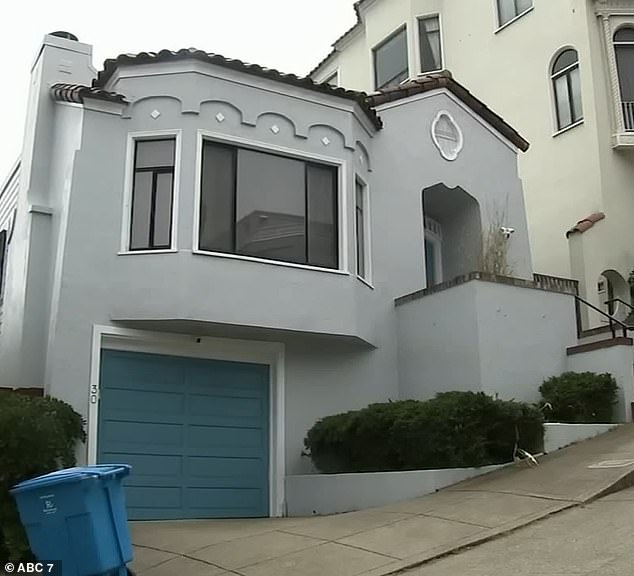The REAL story behind the viral three-bed San Francisco home that hit the market for bargain $490,000 – and why there’s a big catch
Months after a San Francisco home surprised home seekers by listing it for just $490,000, the buyers have now been revealed.
The bargain price was explained after it became clear that the home’s tenants had a deal to live there until 2053, paying just $417 a month in rent.
Tenant Sandra Lee, 83, and her daughter Cheryl, 63, previously told San Francisco Standard that her son Todd Lee was trying to get them out of the house and that, if it were up to her, “the house wouldn’t be for sale.”
But in a surprising twist, Todd revealed to the San Francisco Chronicle this week that he accepted a $488,000 offer from Cheryl.
This Edwardian-style property in San Francisco’s Russian Hill neighborhood made headlines in recent weeks after it hit the market for $500,000, but home seekers were stunned to discover they wouldn’t be able to live in it until 2053.
Sandra previously said arguments over the bargain house, in the sought-after Russian Hill area of San Francisco, tore her family apart.
‘We had a big family. Now we are destroyed. If it wasn’t for the lease that [my son] “I didn’t know that was made in 2018, I don’t know where we would be then,” she lamented.
“It’s incomprehensible, the deceit, the betrayal. This is my son doing this to me.”
She alleged that Todd tried to evict her from the home through a combination of attorney fees, taking over the trust in the home, and listing the home while she was still living in it.
When the house came on the market, it made headlines as people realized how long they would have to wait before they could move in.

Russian Hill is an upscale residential community known for its famous crooked Lombard Street, a major tourist destination
The house was originally built in 1924 and was last purchased in 1968 for $52,000 by Florence Goo and Kenneth Koon Kin Goo.
In 1991, the house was placed in a trust, which was split in two when she died in 2006.
There are three beneficiaries of the trusts: Cheryl, Sandra, and Sandra’s brother, Cedric Goo.
The unconventional lease was concluded in 2022, shortly before Kenneth Goo passed away in the house at the age of 102. Todd said he thought this was because “he wanted to make sure my sister had a place to live, and maybe my mother too.”
The family’s attorney said Cheryl was listed as a tenant on the lease until March 31, 2049, and that it was later amended to extend it.
It also required the tenants to continue paying property taxes and insurance on the lease, and it allowed “the tenant’s immediate and extended family” to use the home as well.
Under California law, a lease of 35 years or longer is considered a transfer of ownership, which could result in property tax changes over time.

Florence and Kenneth Goo were the original buyers of the home in the 1970s for $52,000 and lived there until they died in the home in 2006 and 2018, respectively.
When Kenneth died, it added another layer to the family’s battle over the property, as it was forced to revalue the property, increasing its value from $143,152 to $1,428,000.
Although Sandra claimed that she and her daughter were being taken advantage of, Todd also claimed that he never tried and that he was unaware of the lease until recently.
“This is a family mess,” he told the San Francisco Chronicle.
“I wanted to keep it private. When my mother spoke out, it got exponentially worse.”
The family’s attorney told the outlet that if the house sold for $1.8 million (an amount it would likely sell for), Sandra and Cheryl would earn a combined $1.1 million through their trusts and Cedric Goo would earn $700,000 dollars would receive.
However, the sale to Cheryl means that these resources are significantly lower.
Because Cheryl bought the house for less than $500,000, her and her mother’s shares together are only worth $300,000, and Cedric’s are worth $200,000.
But after years of family strife, Todd Lee told the newspaper that he ultimately agreed to the sale to avoid being fought in court, with a number of state laws and property tax issues still looming in the viral house saga .
